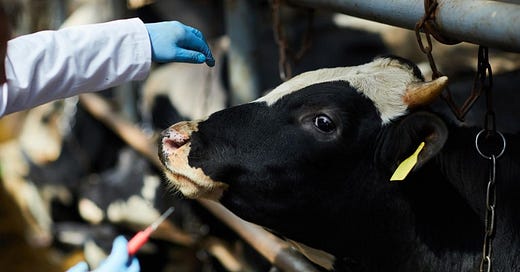It's Time to Revive the Domestic Capacity for Livestock Vaccine Manufacturing
Bring the private sector to the table
The big news out of South Africa's agriculture yesterday was the Department of Agriculture granting Astral Foods Limited permission to start vaccinating their broiler breeding stock against Highly Pathogenic Avian Influenza. This is an encouraging step and follows a lengthy scientific assessment process.
We all recall the 2023 avian influenza outbreak that resulted in egg shortages and higher prices. We also have a vivid memory of the egg shortages in the U.S. at the start of this year, which were also caused by the widespread avian influenza that affected their breeding stock.
Therefore, South Africa's decision to kickstart the vaccination is a welcome development, and an approach we should follow even in the years to come. We must ensure that the regulations remain agile so that, if there are outbreaks of new strains in the future, we can register vaccines speedily and effectively, allowing poultry businesses to avoid losses and maintain solid food security conditions.
However, another matter that South Africa must address is its vaccine manufacturing capability, not just for avian influenza, but also for foot-and-mouth disease and other livestock diseases.
We boast of being the leading agricultural producer on the African continent, but that ranking and status cannot last for long if there is no serious investment in vaccine manufacturing and improvement of biosecurity controls, both for animal and plant health.
State-owned entities have lost some capacity; they must be revived. However, the responsibility for vaccine manufacturing should also be extended to select South African-owned private labs, ensuring the country maintains sufficient production capacity.
We have also witnessed, in recent years, that outbreaks of various diseases are becoming more frequent. This means there is now greater urgency for invent and focus on biosecurity.
The collaborative tone that we heard a few weeks ago at the University of Pretoria Biosecurity conference should now be put into practice, drawing on efforts from academia, the private sector, organised agriculture, and the government. Biosecurity is key to our agricultural progress.





